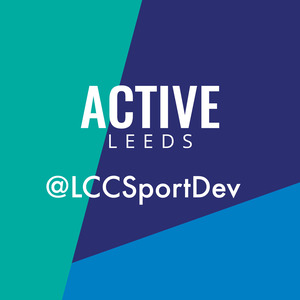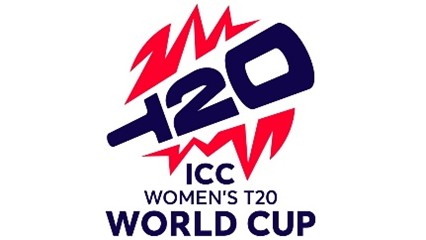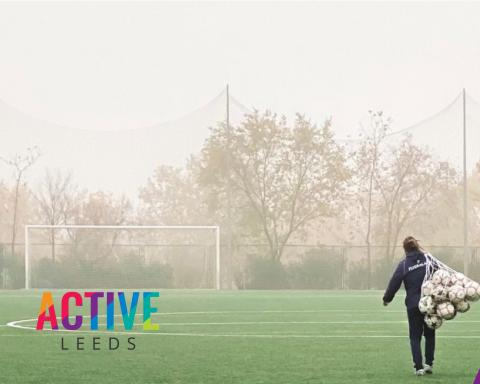
Our Offer To Your Club
Active Leeds recognises the time and commitment it takes for volunteers to run their Sports Clubs successfully. This page aims to provide a one stop shop of information and support for your sports club. If you need direct support or advice please email us at: sport.club.development@leeds.gov.uk or call on 07891270625.

Introduction
LCC Women’s T20 World Cup Club Equipment Grant is intended to support Leeds cricket clubs with the purchasing of essential equipment that is necessary for growing their existing Women & Girls cricket section.
The grants are administered by LCC Active Leeds, the grant panel currently consists of a small panel of LCC, Sport Leeds and local sport representatives.
The total funding pot is small, and demand is likely to be high, therefore, priority will be given to clubs who support protected characteristics and priority demographics to become or remain physically active, to decrease health inequalities across the city. Protected/equality characteristics are defined as- age; disability; gender identity; marital/civil partnership status; pregnancy and maternity; race; religion or belief; sex; sexual orientation; carers; cohesion; socio-economic inequality/poverty and digital inclusion.
(Clubs can apply for up to £300 of support)
LCC Women’s T20 World Cup Club Equipment Grant: - ELIGIBILITY
Who can apply?
Non-profit making cricket clubs located within Leeds City Council administrative boundary
Who cannot apply?
Educational establishments (schools, colleges, universities)
What will we fund?
Grants of £100-300 for essential sports equipment only (Does not include ground machinery)
What won’t we fund?
Items other than sports equipment such as: administration, kit, coaching/staffing, venue hire, ground equipment or machinery or operational running costs.
Club Constitution and governance
Eligible clubs must operate an open membership system.
Clubs working with young people and/or vulnerable adults must have safeguarding policies in place.
Applications will only be considered from clubs who are affiliated to the YCB or ECB and/or are a bona fide club. Applications will not be accepted from leagues.
LCC Women’s T20 World Cup Club Equipment Grant: - GRANT CRITERIA
- Priority will be given to clubs who support protected characteristics and priority demographics to become or remain physically active, to decrease health inequalities across the city. Protected/equality characteristics are defined as- age; disability; gender identity; marital/civil partnership status; pregnancy and maternity; race; religion or belief; sex; sexual orientation; carers; cohesion; socio-economic inequality/poverty and digital inclusion.
- Evidence of need for a grant must be submitted by telling us about how your club will use the equipment to develop participation
- Financial information: demonstrate why your club needs this funding and forward the following to: sport.club.development@leeds.gov.uk
- Include one of the following:
- Copy of most recent audited accounts
- Bank/building society balance (showing latest income and expenditure)
- Grants will not be awarded if the panel consider the applicant to have sufficient other sources of funding or reserves of income unless there is a clear reason for this, which must be explained in the supporting information.
- The Grant awards of £100 minimum and £300 maximum.
- Where applications are made by clubs, the grant award will be deemed to have been made to that club. In no circumstances must the equipment granted be transferred to another club unless with the express permission of the Grants Panel.
- Clubs account details must be provided (personal accounts will not be accepted).
- No application will be considered if the applicant has already incurred the expenditure that constituted the grant claim.
- Purchase of equipment must not be made until notification of grant award. If granted, recipient clubs must provide receipts / evidence of all purchases which must not pre-date the date of grant notification when requested
- Application Forms are available and to be completed online, together with the required financial information.
- Incomplete applications will not be considered.
- Applications should be received no later than the closing date as shown on the website.
LCC Women’s T20 World Cup Club Equipment Grant:
Complete your online application form here: Club Support Grant: Application Form
*Please also send a copy of your current bank accounts to sport.club.development@leeds.gov.uk as supporting information for your application.
If your club would like to strengthen your existing playing membership, develop new activities and teams or even start a new alternative sport within your club, then we can help. Our officers have a wealth of experience in identifying funding, setting up and sustaining new sports programmes. This includes sports camps, school-club links, formal and informal sessions to a variety of targeted groups.
If you would like to discuss your ideas with one of our officers, or be entered into the mailing list please contact: Sport.Club.Development@leeds.gov.uk.
Funding for your Sports Club
Funding information
On request we can provide your club with 3 current funding guides, which provide information on potential funding opportunities for sports clubs in Leeds.
1. Active Leeds Funding Guide for Sports Clubs
2. Voluntary Leeds funding guide for 3rd sector organisations (voluntary & charitable) which includes sports clubs
3. LCC Parks & Countryside guide for parks & greenspace community groups in Leeds
To receive our funding guides please email us at Sport.Club.Development@leeds.gov.uk
Capital Funding For Your Facilities
Our officers can provide advice to your sports club in developing a successful funding application to help upgrade and maintain your facilities. We can advise your club on identifying the correct funding stream, attaining tenure of land, updating constitutions, providing sport development and business plans, as well as how to meet the various criteria required by funders when developing a successful application.
For further information please contact chris.gott@leeds.gov.uk
Active Leeds Sport Club Development Governance for Sports Clubs 2020
Sports Clubs come in all shapes and sizes. They can be hundreds of years old, with hundreds of members or set up last summer by a few friends or like-minded people.
Naturally, those in charge of running the club often focus on things like getting more members, better coaches and improving or finding facilities. But what’s often forgotten is the actual structure of the club – how it is legally set up?
Do you know how your club is set up in the eyes of the law? Is your club set up in a way that suits it best? All potential funders will need to understand what type of governance you have, as well as what type of dissolution clause (winding up arrangements) you have in place.
If you would like a copy of our Governance for Leeds sports clubs guide, please email us at: Sport.Club.Development@leeds.gov.uk
Leeds City Council can provide discretionary rate relief for your sports club, based on a sport development criterion. We can also advise your club on the benefits of becoming a Community Amateur Sport Club (CASC) as well as on other governance models for your club.
If your club would like to apply for DRR, or to be a CASC please contact: Chris Gott chris.gott@leeds.gov.uk
Updates from Us
For further support and regular updates follow @LCCSPORTDEV on X (Formally Twitter)

This is Buddle - the new home of Club Matters.
We share the latest information, training, and tools to help clubs and organisations overcome challenges and make the most of the opportunities available to them.


